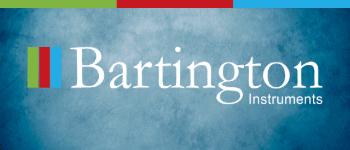Securing the Olympic legacy
Eighteen months after the close of the 2012 London Olympic Games, the Home Office’s Stephen Phipson and Simon Everest from UKTI DSO tell Robert de la Poer why the UK security industry is still benefiting from the Olympic legacy
RP: Promotion of the UK’s security industry overseas is a key part of the Home Office’s and UKTI DSO’s remit. To what extent has the 2012 Games boosted the reputation of UK security companies internationally? Are we still seeing the benefits 18 months after the Games ended?
SP: Within the Home Office I lead a dedicated team focused on supporting and promoting the UK security industry, and increasing the UK’s share of the security export market. Our work builds on the wide-ranging experience, expertise and knowledge the UK has in the area of security – across both the public and the private sectors – and, specifically, our achievements in delivering a safe and secure London 2012 Games.
The Games’ security operation was an excellent example of the capabilities the UK security industry has to offer. Against a backdrop of a significant domestic and international security threat, the UK ensured that the entire Games period passed off without a single major security incident. The Games leaves the UK with a lasting legacy in a whole range of areas, including successfully delivering a risk-based, intelligence-led approach to major event security; in designing and building robust security measures into state-of-the-art, iconic design; and in scaling up our approaches to such things as border and transport security to respond to the additional pressures brought by the Games. The UK set the gold standard, the bar is high and the government is working hard to ensure industry is able to capitalise on this achievement. We continue to work with overseas governments to share our transferable and innovative expertise in this area, increasing understanding of the capabilities the UK has to offer in the public and private sectors, and identifying and realising commercial opportunities for the UK as a result.
SE: UKTI’s London 2012 – Delivering the Economic Legacy report shows that we are clearly harnessing the Olympic momentum. Overall, across all sectors, one year on there has been £9.9 billion of economic benefit from Olympic-related activities, 31,000 new jobs, £5.9bn of additional sales from Olympic-related activity such as the British Business Embassy, a £2.5 billion boost to inward investment and 60 contracts won by UK companies for the Sochi 2014 Winter Olympics and 2018 Russia World Cup. So we are definitely still seeing the benefits of the 2012 Games. And the UK security industry has been getting its share of this.
RP: What do you think are the most significant lessons which the UK security industry has learned from the Games, and what applications might these lessons have for major event planning in future?
SP: A strong partnership between public bodies and private enterprises underpinned the security successes of the Games. The lessons from this relationship and early engagement is ever-more relevant as we move together towards identifying and realising international opportunities. We are building on this through the Home Office’s Security Industry Engagement team, which has within it representation from industry, the police and others, and has close links with UKTI’s DSO and the security industry’s trade associations.
SE: From my perspective I think there has been a recognition that early engagement with event organisers is important, but that actual contracts can take a while to come through. And of course, persistence is important.
RP: How do you facilitate the sharing of these lessons with international partners? Can you give any examples?
SP: Learning from our London 2012 security approach continues to be a significant element of our dialogue with our international partners; they are keen to hear about what we did, and how we did it. So we have these conversations, we facilitate access to the people and the companies that delivered London 2012 security, and we support industry to convert this into commercial opportunities.
We have backed up this dialogue with dedicated literature which captures the safety and security lessons and good practice we gained from the Games, and outlines what the UK can offer in terms of supporting international partners facing similar challenges. Sharing this learning with future major event nations is an objective in itself, but it is also a hook which can facilitate further dialogue and highlight opportunities for wider security engagement and export opportunities.
RP: In what specific ways has UKTI worked with the Home Office to build on the Games’ security successes? What does each organisation bring to the table?
SP: The experience of hosting the 2012 Games has left an important legacy of closer working across government, and between the public and private sectors. A strong working commitment between UKTI DSO and the Home Office to promote and oversee security exports is critical to growth.
SE: UKTI DSO and the Home Office are working increasingly closely. Whether it is working on outward missions, attendance (often alongside the UK security industry) at international exhibitions, or hosting international visitors to the UK, joint working is now a day-to-day feature of what we do. DSO has detailed knowledge of the UK security sector and is able to use its network of trade advisors in over 100 countries to promote the UK security sector and provide assistance to UK companies. Coupled with the Home Office’s security expertise and track record of delivering the safest Games ever, I think this is a really powerful joined up approach.
RP: Do you think the security model established at the Games is only applicable to other sporting events, or could it have wider applications?
SP: The UK’s experience and expertise from hosting a safe London 2012 resonates internationally across all security sectors, from major event planning to protecting national assets or securing a major infrastructure programme.
This is supported by an impressive list of capabilities including chemical, biological, radiological and nuclear (CBRN), command and control, aviation security, border security, space security, cyber security, event security and private security. All delivered by our highly-regarded UK security industry comprising 11,500 companies and 165,000 highly-skilled employees. These international opportunities are being harnessed by my team. The legacy of London 2012 can open the dialogue, but it is just the start of our offer.
SE: I am absolutely clear that while the model was applied to the Olympics it is equally applicable to any other type of large-scale event, for example, a political summit. The 2012 security operation highlighted not only our expertise in planning and organisation, but also showcased our state of the art technology in areas such as cyber security.
RP: What is the UKTI’s Rio 2016 Contracts Toolkit, and how can it benefit UK security companies seeking opportunities around the upcoming Games?
SE: I’m not sure that I would describe it as a “toolkit”, but our approach to Rio and the other potential export opportunities has comprised a joint “government and industry” approach. This has involved a series of government-to-government engagements focused on sharing our 2012 experience and lessons learned, and offering help and assistance as required. And UKTI DSO has worked closely with the Home Office to ensure the Home Office’s Centre for Applied Science and Technology (CAST) and annual Security & Policing exhibition at Farnborough has featured the UK’s 2012 security legacy. The March 2013 exhibition was attended by delegates from 60 countries and enabled the UK security industry to build relations with a variety of countries seeking to host major events.
Stephen Phipson is the Home Office’s Director of Security Industry Engagement.
Simon Everest is UKTI DSO’s Senior Security Adviser and Deputy to Director Americas, East Asia and Australasia.
Case Study: Olympics delivers golden ticket
Zaun Limited is a UK manufacturer of high security perimeter protection systems with regional offices in France and Dubai. Its range includes temporary, PAS68 and permanent fencing solutions for sports, events and perimeter protection, into which it can integrate CCTV and PID systems. The business was founded in 1996 by directors Alastair Henman and Paul Painter, who hold key positions on industry bodies. It is a founder member of the Made in Britain campaign and trades heavily on the fact it is British, especially in the Middle East, following its heavy involvement in 2012’s London Olympics, which it describes as the “golden ticket”.
Zaun installed more than 30 kilometres of security fencing at the 2012 Games at over 15 individual sites, from the main Olympic Park and athletes’ village to specialist locations such as Wembley, the O2 Arena and Horse Guards Parade. It also secured the International Media Centre, Olympic Stadium and main Olympic Park, and installed temporary protection from vehicle and crowd attack at Olympics venues from Weymouth to Newcastle. More than 250 people worked more than 30,000 man hours on 20 contracts to pour 1,400 cubic tonnes of concrete and fit half a million bolts on the security fencing that equated to 600 lengths of an Olympic pool.
Paul Painter described the scale of the achievement: “We developed new technology specifically for the Olympics which has enhanced our capability and portfolio for the future. We featured widely in the media and even in the Olympics commemorative brochure. And UKTI have used us as a British trail-blazer on trade delegations overseas since.
“So not only did the Olympics create a mini-boom for us over the past few years, it has also given us credibility and exposure internationally at other major sporting events.“
Both prior to and since the London Olympics, Zaun has worked very closely with UKTI, which has set up overseas opportunities, helped liaise with foreign embassies and provided the platform for Zaun to talk to governments, event organisers, security services and customers across the globe. Zaun has presented and exhibited as part of UKTI delegations at the LAAD Conference in Rio de Janeiro, Brazil; SportAccord in St Petersburg, Russia; and numerous Middle Eastern conferences to drum up more business and bang the British drum. In early November, Zaun shared a round table with former London Mayor Ken Livingstone at the Paris construction and architecture expo Batimat.
Throughout, UKTI international trade advisor Terence Madkins has been a constant support to Zaun, giving key advice through his experience of dealing with overseas markets. It has led to them providing perimeter security for the G8 Summit in Enniskillen this June, while talks are ongoing with Brazil over the 2014 World Cup and Olympics that follow two years later.
Painter concludes: “This would never have happened without the Olympics. It’s been like a golden ticket.”









